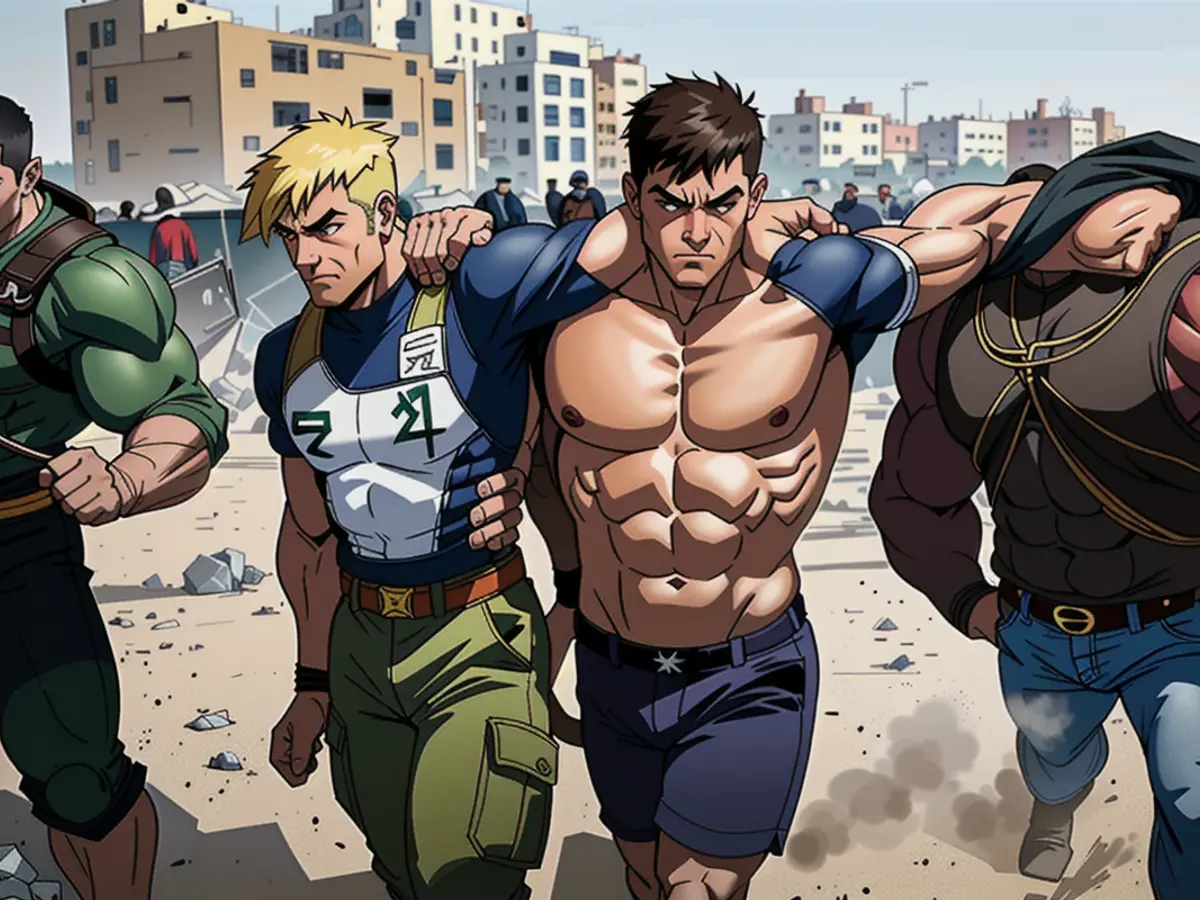Sounding the Alarm: UN Agencies Urge Swift Action on the Worsening Humanitarian Situation in Gaza
- Unrest in Gaza: United Nations organizations express alarm
In light of the escalating deterioration in Gaza, several UN agencies are urging the global community to take urgent action. For over a month, the Israeli blockade has barred any movement of commercial or humanitarian supplies into the area, as stated in a joint declaration by the heads of six UN organizations, including the World Food Programme, UNICEF, and the World Health Organization.
"Over 2.1 million people are once again finding themselves trapped, under attack, and on the brink of starvation, while lifesaving supplies like food, medicine, fuel, and aid are held back at the checkpoints," the statement warns. The dire situation has led to catastrophic outcomes, with figures showing that over 1,000 children were killed or injured in the aftermath of the latest truce—the highest weekly toll since the conflict began [1][2].
The health system in Gaza is in dire straits, with limited capacity and critical medical and surgical supplies running critically low, threatening to hinder the hard-won progress in healthcare [2][3]. "What we are witnessing in Gaza constitutes acts of war that disregard human life entirely," the agencies assert. Worsening the situation, new Israeli orders to evacuate have forced hundreds of thousands to flee yet again, with no safe haven remaining in sight.
Insights:
Current Humanitarian Concerns
- Basic Needs: The closure of Gaza's borders has resulted in a major shortage of clean water and electricity, making it difficult for a large portion of the population to access safe drinking water [1][2]. The ongoing blockade also curtails the entry of vital food and medical supplies, compounding the situation and exacerbating malnutrition [2][3].
- Forced Displacement: Forced evacuations issued by Israel have led to the displacement of Palestinians to areas with limited access to life-sustaining services, raising concerns of permanent displacement and potential war crimes under international law [3].
- Civilian Casualties: Protracted attacks on residential neighborhoods and refugee camps have resulted in numerous civilian deaths, including many children and women [3]. The lack of designated safe zones worsens the situation.
- Journalist Safety: Incidents of targeted attacks against journalists in Gaza underscore concerns surrounding press freedom and the protection of civilians [3].
Actions Called For
- Resumption of Humanitarian Aid: The prompt resupply of humanitarian aid, including food and medical supplies, is paramount to prevent the further deterioration of the crisis [1][2].
- Protection of Civilians: Urgent action is required to secure civilian protection and minimize casualties, particularly for vulnerable groups such as children and women [3].
- Political Resolution: The UN High Commissioner for Human Rights, Volker Türk, underscores the necessity of a political resolution and a ceasefire to address the root causes of the conflict and prevent further escalation [3].
- Hostage Release: Efforts to de-escalate tensions and ensure unimpeded humanitarian access depend on the unconditional release of hostages [3].
- Gaza
- Middle East Conflict
- Gaza Strip
- Alarm
- New York
- UN
- The worsening humanitarian situation in Gaza has been raised as an urgent concern by several United Nations agencies, calling for swift action from the global community.
- The ongoing Israeli blockade on Gaza, as highlighted by the heads of six UN organizations, has resulted in a critical shortage of employment policies for thousands, including the World Food Programme, UNICEF, and the World Health Organization.
- Evidence shows that the health system in Gaza is on the brink of collapse, with a significant increase in the number of casualties due to a lack of employment policies in critical areas such as healthcare and medicine.








